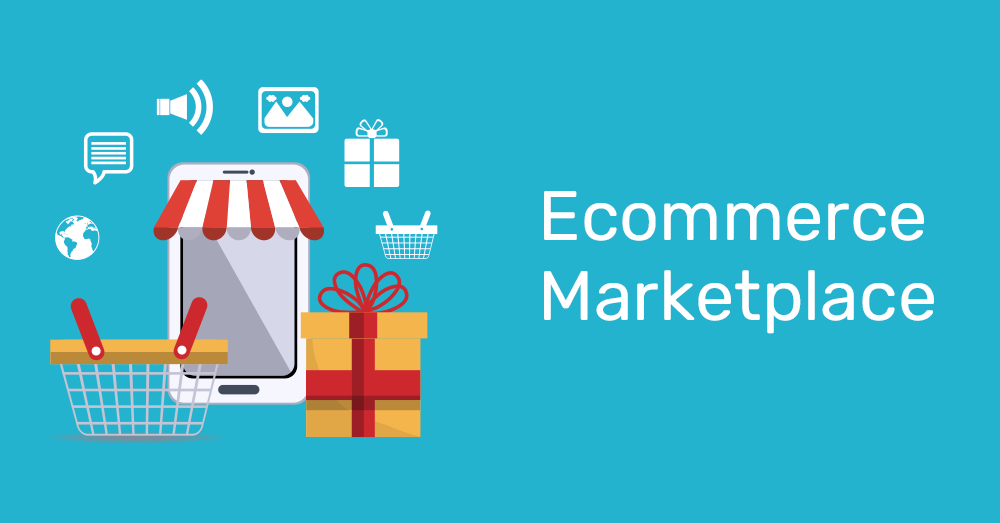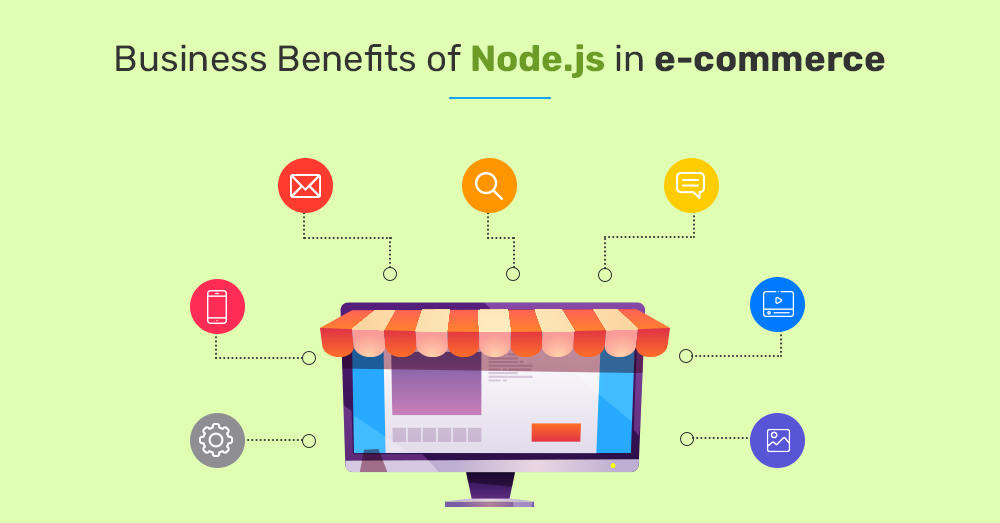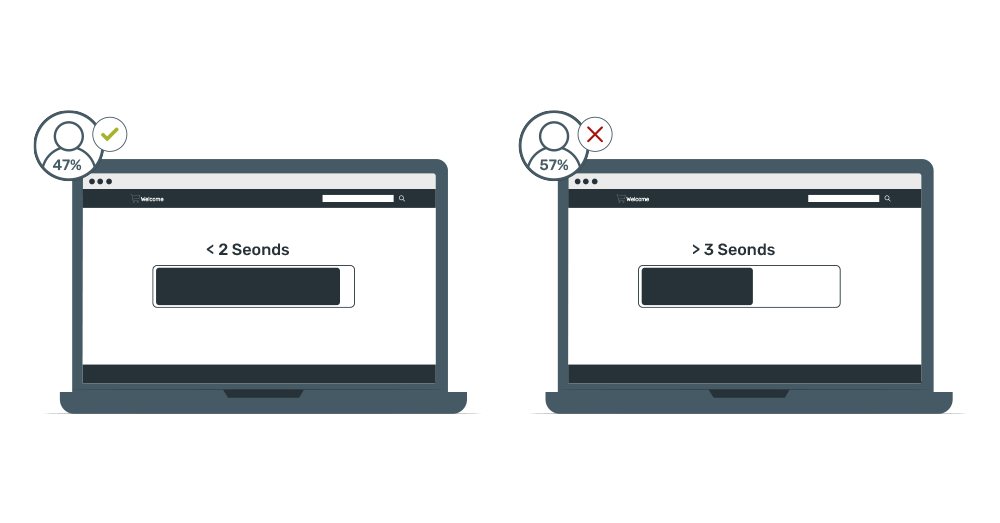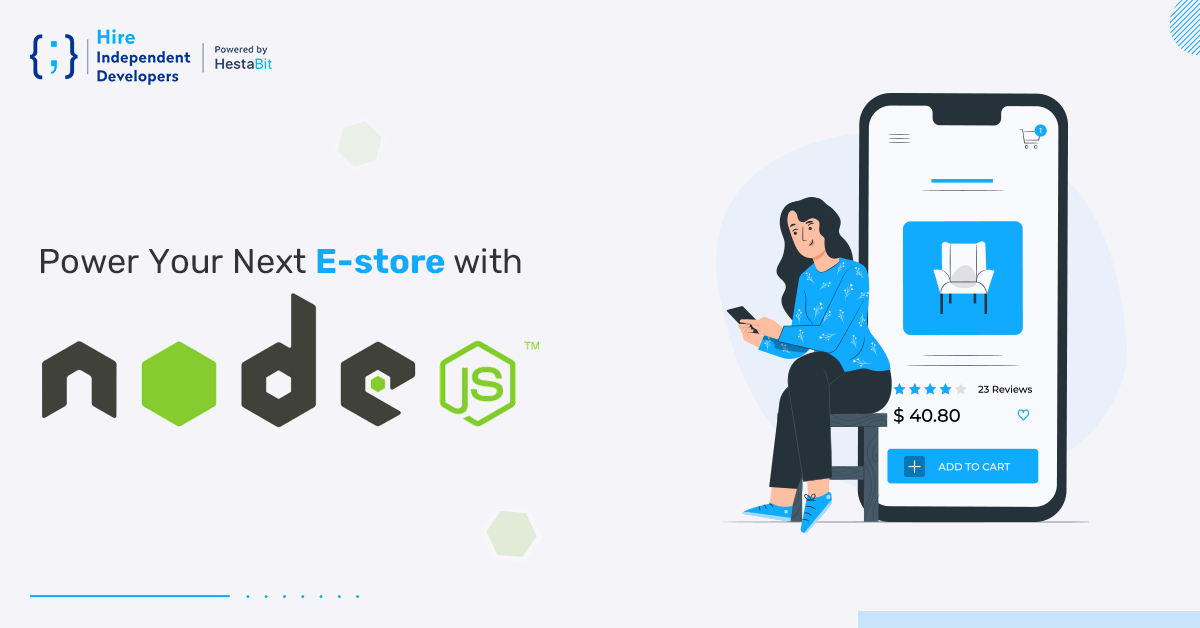“We were not thinking about numbers back then, but we knew something big could be built out of eCommerce.” Binny Bansal and Sachin Bansal ( Founders, Flipkart )
It seemed like yesterday when eCommerce was just a buzz word in the industry. Every entrepreneur wanted to explore the world of online stores since it was new and fascinating. However, web development took a drastic leap, and eCommerce is the order of the day now. Look at how traditional shopping transformed beyond recognition in no time. Let’s be honest; we love surfing through online stores whenever we are unoccupied; during our lunch hours, before going to bed, even in rush hours when we are piled up with work. Because why bother going out when all we have to do is make an order and pay for the product that is going to be delivered right at our doorstep?
In whichever way we see this evolution, eCommerce has given us a remarkable experience. It offered us the luxury of comfort by introducing us to this whole online community. With its immense popularity, eCommerce is the need of the hour for business enterprises today.
Now here’s a situation. It’s 2021, and you are planning to introduce your business via eCommerce stores. However, you are in a tech dilemma. Choosing one right technology that can transform your business idea into an online success can be tricky. And to make this challenge super easy for you, we have decided to talk about that one tech that can fulfil all the primary criteria in your checklist.
We are talking about NodeJS. NodeJS for eCommerce is an exceptional choice, but merely stating the fact isn’t going to be enough. For you to make a final call, we have discussed some of the primary reasons why it can be an ideal match for your platform.
In this article, we will try to answer every major question that arises with the eCommerce business. Here, we will talk about :
- Why is eCommerce important for your business?
- The truth about building eCommerce websites and apps that no one talks about.
- Scalability: The real-time problem.
- Bringing NodeJS to your rescue.
- What’s more with the NodeJS eCommerce website?
- Every Single second matter if your site is eCommerce.
- The beauty of building eCommerce with NodeJS.
Why is eCommerce important for your business?

Here are five essential benefits of having an eCommerce store for your business:
Cost Reduction
The beauty of owning online stores is that it becomes unnecessary to present all your products in a physical space. There are enterprises operating online that only deliver their products via eCommerce. This way you not only save on rental premise but also every additional cost on electricity, internet etc.
Global Presence
Speaking of product presence in a digital space, you can put them on sale anywhere in the world. eCommerce helps you reach your potential audience in any corner of the world, regardless of the time and distance zone. So if you want your business to grow, you can create a digital store and localize it in multiple languages. Make the entire world your playground.
Better Marketing Opportunities
Your eCommerce website is going to be the best marketing tool you are ever going to have. With good SEO, your store can appear in the top customer search results. Linking your social media platforms to your website will provide you with a better engagement. And on top of that, your customers will always remain updated on your products and services. This is genuinely the best part of owning an eCommerce space.
Easier and More Convenient
At current times, everyone’s life is pretty hectic, which means going to a physical store will take a lot of time and effort. Then how do you fit into your customer’s daily life? By starting an eCommerce store. This way, you make your products accessible to them wherever and whenever they want.
Personalization ( Building a better experience)
One of the most apparent benefits of having an eCommerce store is able to know what your consumer wants. Physically, it becomes very uncomfortable for potential buyers to choose and compare products. eCommerce allows them to reach every product they like and then make a reliable decision. Even for you, the process simplifies. You would know at what point your customer left the purchase. What made them buy your product and many more answers.
There are endless advantages of having an eCommerce store these days. In conclusion, it is pretty easy, low-risk and low-cost to start an eCommerce business. Further, If you have decided to build an online store for your business, let’s explore what more comes in your way.
The truth about eCommerce, no one talks about!
The best-known eCommerce backends in the world are developed for scalability. Since they are in charge of generating, managing and delivering information to the frontend display user, that’s where the problem arises.
Building a reliable and scalable complex eCommerce interface is tough.
Your online store will depend on various components such as suppliers, logistics, shipping, payment gateways etc. This makes it even more complex for you to maintain availability and performance 24*7. If you integrate all these components, your website is eventually going to slow down.
Moreover, if you think about behind the scenes, your backend is going to fill up with thousands of requests to carry such complicated operations. Many other things may fail due to a simple backend incident.
Scalability: The real-time problem
In general, many developers focus on enhancing the front end performance of eCommerce stores to rectify the complexions. The actual culprit, however, remains the slow backend load time. If your eCommerce site or application has a slow backend load time, the only thing visible to your users will be “the white screen”.The heavier the requests, the longer the backend load time. Also, after some time, your application might turn unstable too.
A research study by Moz tells that scalability or slow backend load time directly impacts your search engine rankings. So, In order to develop a successful eCommerce store, your backend needs to be well established.
NodeJS to Your Rescue! :

Building your eCommerce website with NodeJS makes much more sense now that we know the backend problem. NodeJS ensures the balance between the backend and the frontend loading time due to its asynchronous nature.
Asynchronous communication between web sites or web apps offers an efficient system and scalability. When you have a vast catalogue of products to present on your site, the effortless programming of NodeJS is going to make things easy for you.
What’s more with NodeJS eCommerce Website?
NodeJS eCommerce website enables you to manage multiple concurrent users at a time. The reason behind this is its event-driven and single-threaded architecture. This case is very unlikely to other web technologies that create an additional thread for every single request. This may eat up the entire memory by the time processing gets over.
The pros do not end here. NodeJS allows developers to make the best use of callback and event loop for I/O operations. This is NodeJS’s typical way of breaking long-running requests into smaller ones.
Every Single Second Matters When Your Site is eCommerce!

According to Google research, “40% of the audience abandons a website if it takes more than 3 seconds to load.” So a second delay in page response can lead to a 7% reduction in conversions. Every website slows down with time, which means you might lose tons of conversions due to speed.
NodeJS keeps checking on your work queue every few seconds, which gives it time to process new tasks simultaneously. Isn’t it wonderful?
Read More: How to Improve Website Speed?
The beauty of building eCommerce with NodeJS
Now that we have discovered the magic of NodeJS with eCommerce, here are some of the other critical factors that affect your online store. Sticking to our promise, here’s how NodeJS checklists all of them.
Read More: Pros and Cons of Node JS
Performance
NodeJS exclusively supports multitasking by offering better outcomes that too at lower costs. The customer’s journey in the eCommerce store involves several operations like adding items to the basket, choosing payment, changing product features etc. It is super crucial from the technology point of view to serve such operations efficiently. Since NodeJS is known to handle multiple tasks simultaneously, it is the perfect match for eCommerce.
Various plugins and packages
NodeJS comes with a great deal of plugins and packages in npm (Node Package Manager) that you can easily implement in your eCommerce app. The best part is, this way, your developers might need to write everything from scratch. They can easily leverage the open-source NodeJS solution and increase the development speed.
One Language for Backend and Frontend
NodeJS is a Javascript-based environment. Javascript is also utilized by other popular front-end frameworks like Ember, Angular, React etc. Therefore, with the help of NodeJS, you can create isomorphic applications that are written in a single language. Ultimately, there will be a streamlined development process, the backend and frontend communication will be easier, and the codebase on both sides will be understandable.
Active Community
There is a vast group of developers supporting and contributing to the constant improvement of NodeJS. Thanks to this massive community, NodeJS frameworks for eCommerce are always up-to-date and well documented. Developers also produce a ton of ready-made solutions, plugins, codes and modules online. So If a challenge pops up in your development process, chances are you already have an answer on StackOverflow.
So now, we have pretty much covered every vital criterion that comes while creating an eCommerce store. NodeJS offers a perfect solution to every little challenge in building the online business space.
Wrapping Up
Building an eCommerce website or web app with NodeJS can be an ideal answer to your dilemma. There are tons of things happening in eCommerce today. Since technology and people always keep evolving, NodeJS for eCommerce brings us all together to create more effective solutions. Last but not least, it’s never too late to jump right in, experiment and then evaluate if it’s right for your business. For today, your customers are in the driver’s seat, and your eCommerce store is going to customize the journey ahead of them.





